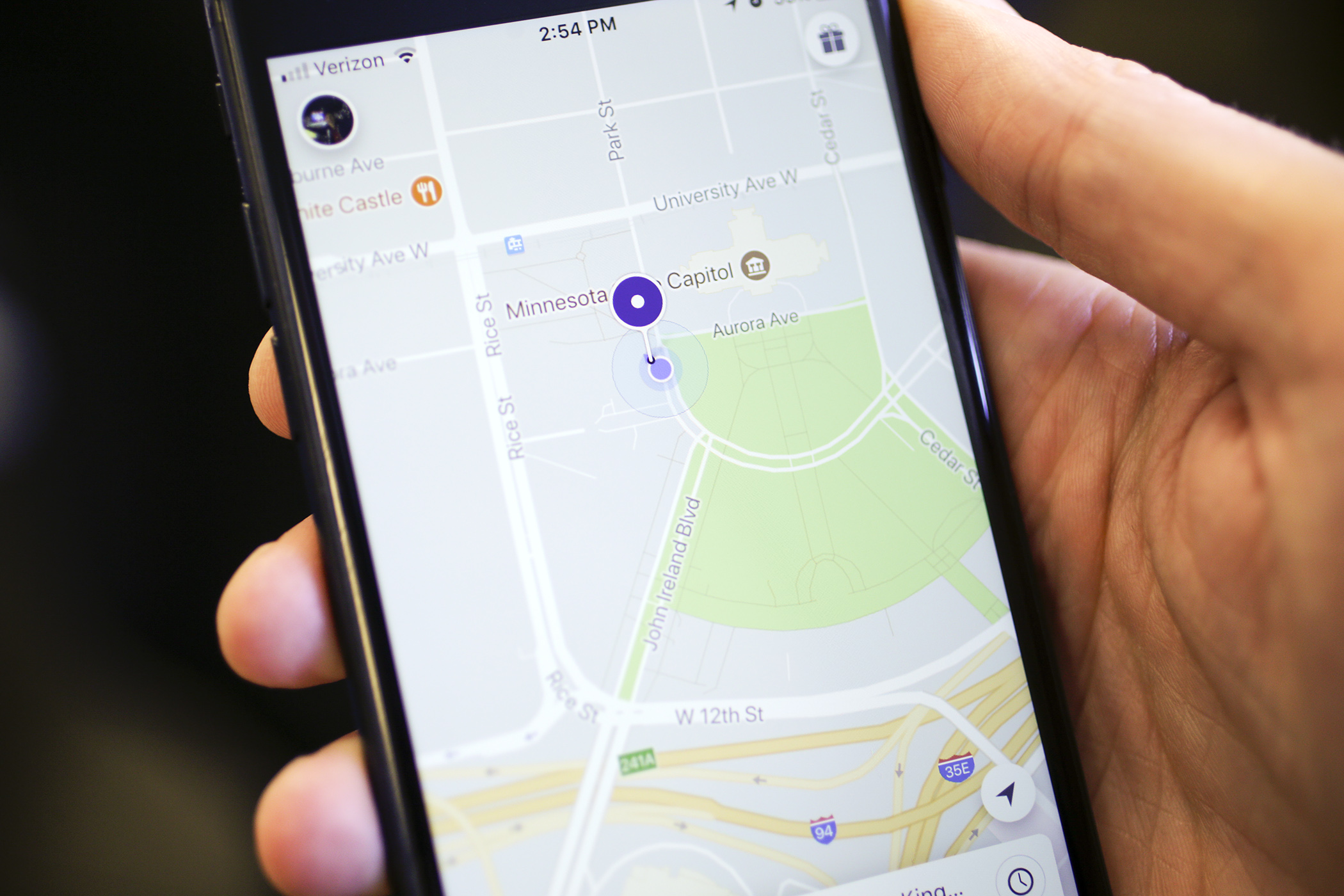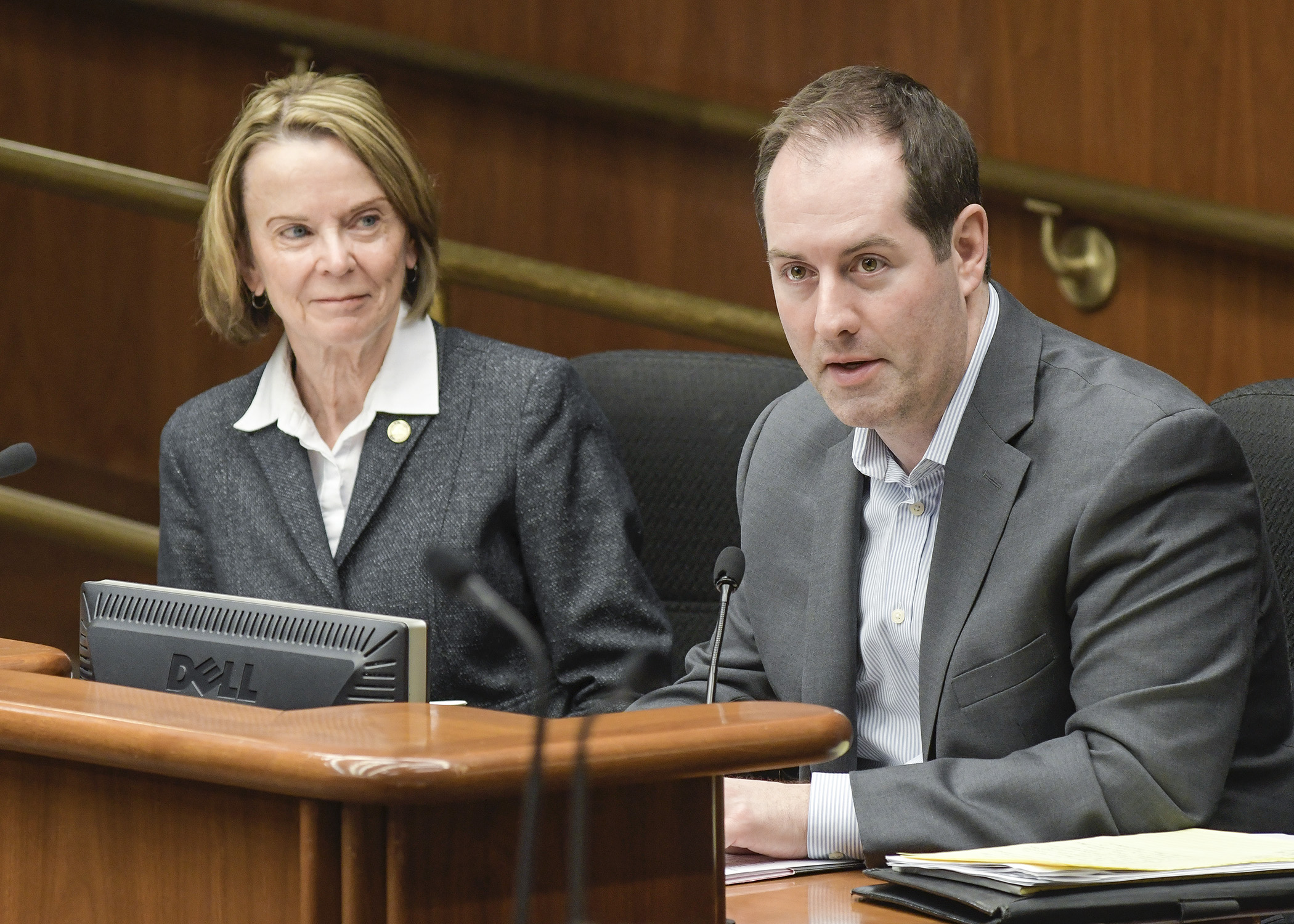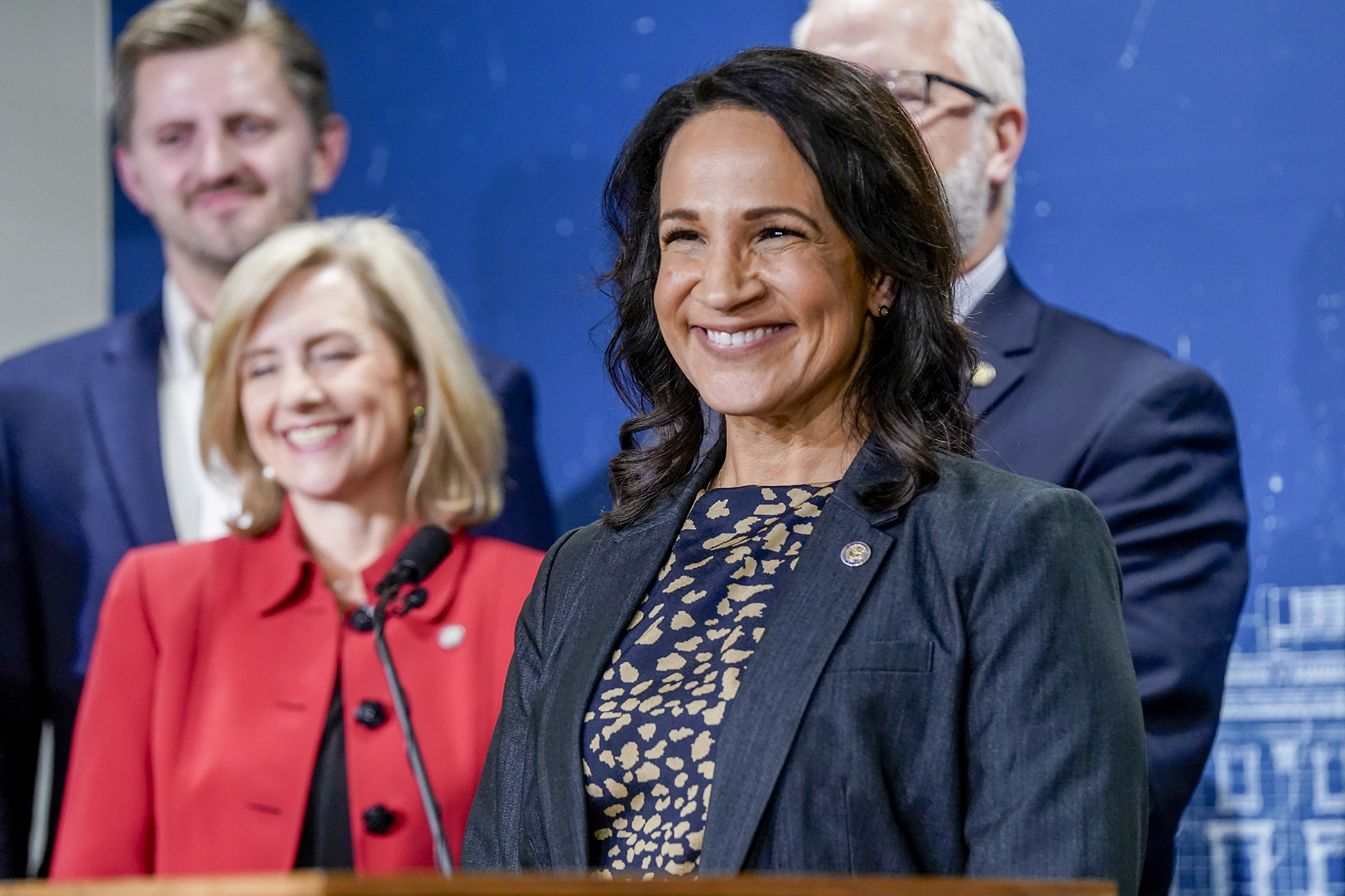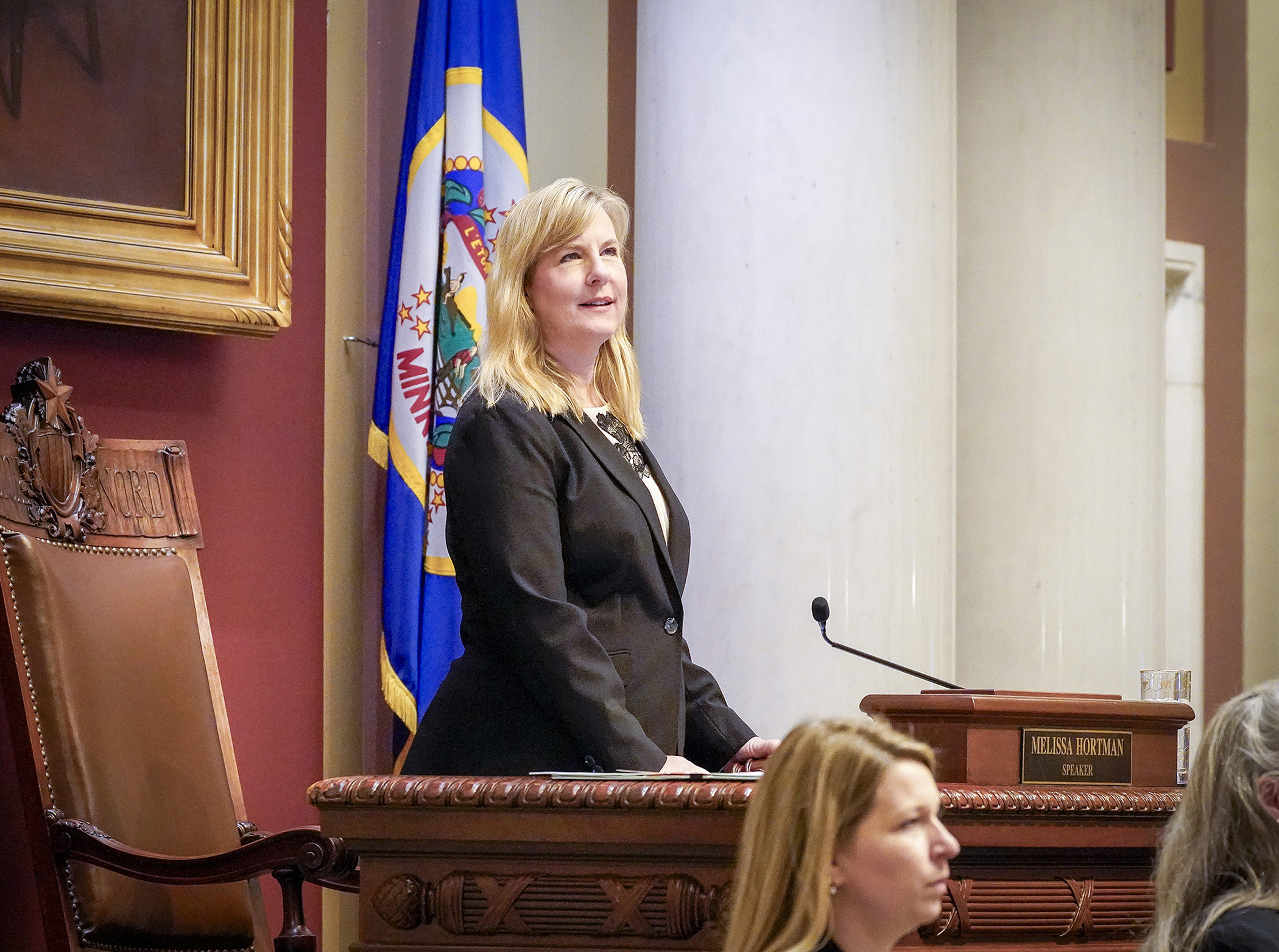Background checks, enforcement concerns stall bill to regulate ridesharing statewide

Citing concerns over background checks and an enforcing agency, the House Civil Law and Data Practices Policy Committee on Tuesday laid over a bill that would regulate ridesharing companies like Lyft and Uber throughout Minnesota.
Ridesharing, or transportation network, companies are currently unregulated in most Twin Cities suburbs and in Greater Minnesota, while Minneapolis and St. Paul have established stringent ordinances governing them. Sponsored by Rep. Sandy Layman (R-Cohasset), HF3032, as amended, would replace any local ordinances and requirements and establish a uniform code for the entire state.
Its companion, SF2704, sponsored by Sen. John Jasinski (R-Faribault), awaits action by the Senate Commerce and Consumer Protection Finance and Policy Committee.
“Without a uniform statewide regulation, like the one before you today, a patchwork of local regulations stands as a barrier for drivers and riders, who otherwise could be sharing a ride to work from their home in the suburbs to their office in the Twin Cities,” said Matt Patton, Lyft’s Midwest public policy manager.
 Matt Patton, Lyft’s Midwest public policy manager, testifies before the House civil law and data practices committee in support of a bill sponsored by Rep. Sandy Layman, left, that would regulate transportation network companies. Photo by Andrew VonBank
Matt Patton, Lyft’s Midwest public policy manager, testifies before the House civil law and data practices committee in support of a bill sponsored by Rep. Sandy Layman, left, that would regulate transportation network companies. Photo by Andrew VonBankCities, like St. Paul, and their associations, like the League of Minnesota Cities, oppose the bill because it would erase their local ordinances in favor of a statewide standard. People like Waleed Sonbol, owner of Blue and White Taxi, said there is “great risk” of approving “lower standards” that come with Lyft and Uber.
While the House Commerce and Regulatory Reform Committee targeted the business-side of the bill, and approved it March 6, Tuesday’s hearing focused on concerns around rider safety. Lyft representatives claim the bill is intended to be “as strict or more strict” than Minneapolis and St. Paul ordinances, but some lawmakers didn’t buy it.
“It’s your intention to be as strict – you’re not,” Rep. Debra Hilstrom (DFL-Brooklyn Center) said, citing “gaps” in the bill’s references to misdemeanor and gross misdemeanor convictions with ridesharing drivers, along with non-convictions, known as stays of adjudication.
Hilstrom also noted the bill doesn’t clearly outline who would enforce the background checks, although the Department of Commerce is the licensing authority.
“I’m a little concerned at this point,” Rep. John Lesch (DFL-St. Paul) said. “It feels like to me that this is a bill that the industry put together to run up the flagpole and see who salutes. … I feel like the industry should have probably dotted a few more I’s and crossed a few more T’s before they even brought it here.”
Since the industry is currently unregulated, however, other legislators believe government needs to intervene – to do something – because the pace of emerging technology far outpaces the way government operates.
“We have to do the best we can, although we may not come up with the perfect bill,” Rep. Eric Lucero (R-Dayton) said. “But we need to advance something and try to wrap our arms around this emerging field of technology while, at the same time, then, continue the conversation into the summer and then come back and continue the work next legislative session.”
Related Articles
Search Session Daily
Advanced Search OptionsPriority Dailies
Demuth named Republican speaker-designate
By HPIS Staff Current House Minority Leader Lisa Demuth (R-Cold Spring) is officially the Republican speaker-designate charged with working with DFL counterparts to get the House organized fo...
Current House Minority Leader Lisa Demuth (R-Cold Spring) is officially the Republican speaker-designate charged with working with DFL counterparts to get the House organized fo...
House DFL selects Hortman as speaker-designate
By Jonathan Mohr House DFLers have again chosen current House Speaker Melissa Hortman (DFL-Brooklyn Park) to lead their caucus amid uncertainty in the aftermath of Tuesday’s election that may ha...
House DFLers have again chosen current House Speaker Melissa Hortman (DFL-Brooklyn Park) to lead their caucus amid uncertainty in the aftermath of Tuesday’s election that may ha...